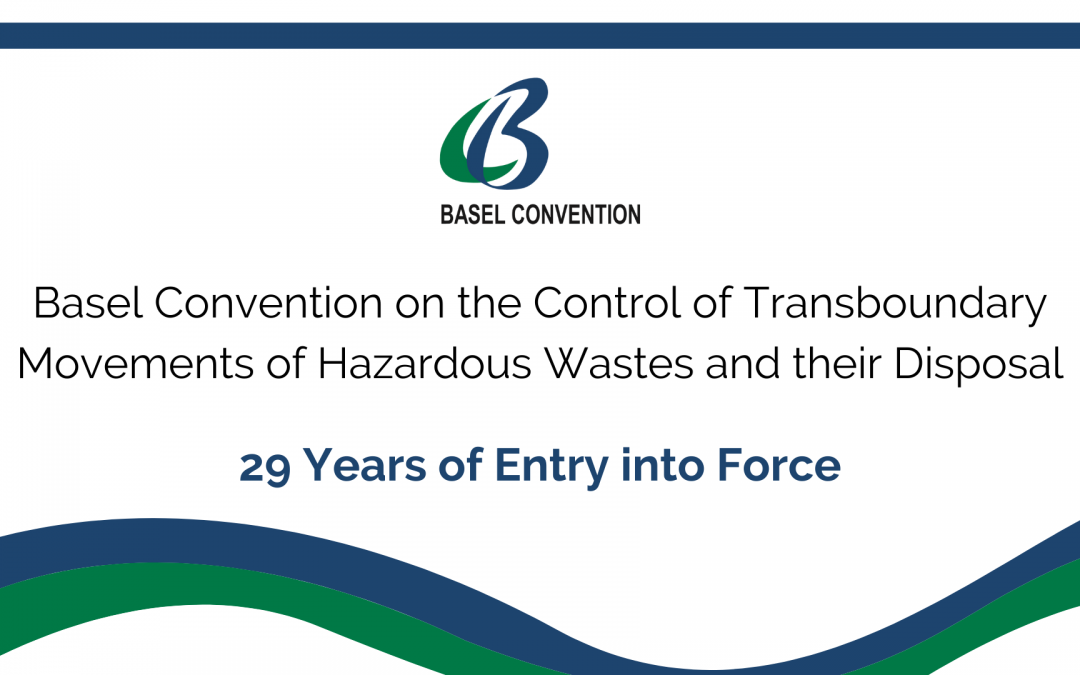What is the Basel Convention on E-waste?
In August of 1986, a Liberian cargo ship named the Khian Sea embarked from an East Coast port carrying nearly 15,000 tons of ash taken from Philadelphia waste incinerators. Previously, Philadelphia had sent ash waste to New Jersey for disposal. However, NJ flatly refused to accept any more ash from Philadelphia due to the huge expense and toxicity of the waste.
The owners of the company managing the Philadelphia waste then contacted Khian Sea operators who ran the Amalgamated Shipping Corp and Coastal Carrier, Inc. After picking up all 15,000 tons of ash waste, the Khian Sea spent almost two years searching for a country that would allow them to dump the ash.
In 1988, the Khian Sea was no longer carrying ash waste. When asked by authorities where they dumped the ash, the crews refused to answer. Under duress, the captain eventually admitted they dumped the ash into the Indian and Atlantic Oceans.
Following an investigation of the environmental catastrophe caused by this illegal dumping of toxic waste, the Basel Convention was created to address the disposal of all forms of hazardous waste.
What Does the Basel Convention Do?
The Basel Convention is actually an international treaty designed to decrease or eliminate the movement and disposal of hazardous waste (including electronic waste). The Basel Convention also provides regulations to stop the transfer of toxic waste from developed countries like the U.S. to less developed countries (LDCs). Members of the Basel Convention work closely with the governments of LDCs to create environmentally safe methods of hazardous waste disposal while assisting in implementing technology to minimize waste.
The Basel Convention does not address the generation and/or transfer of radioactive waste from one place to another.
What Substances are Identified by the Basel Convention as Hazardous?
Currently, there are nearly three dozen categories of hazardous waste listed by the Basel Convention as harmful to human, animal, and environmental health. Some of these chemicals include:
- Arsenic
- Cadmium
- Mercury
- Lead
- Cyanide
- High corrosive acids and alkalis
- Chromium
- Clinical waste (any materials that are capable of spreading infectious pathogens or other microorganisms harmful to the environment and animal life)
- PCBs (polychlorinated biphenyls)
Many of these substances are needed to manufacture electronics. Since 2002, the Basel Convention has officially considered ewaste the most pressing global issue impacting the ability of the planet to sustain the health and well-being of its living organisms.
To combat the improper disposal of ewaste, the Basel Convention has adopted several initiatives, such as the Mobile Phone Partnership Initiative and the Nairobi Declaration on the Environmentally Sound Management of Electrical and Electronic Waste. These initiatives provide mandates to the Convention’s Secretariat to devise and implement specific directives:
- Preventing the illegal dumping of ewaste in LDC countries
- Developing environmentally responsible management systems in Africa, South America, and the Asian Pacific for conservative disposal of ewaste
- Preparing, testing, and utilizing technical guidelines directing the movement of hazardous electronic waste between nation boundaries
- Continuously clarifying the distinctions between non-waste (recyclable materials) and waste that cannot be recycled
- Providing information to both developed and lesser developed countries regarding the Basel Convention’s policies, certification programs, and financial initiatives for regional implementation of ewaste disposal proposals.
The Basel Convention is not a law-making organization. Instead, it offers the latest “best practices” protocols for the disposal of toxic waste based on the latest research data. Member countries of the Basel Convention are assisted by the Convention in any way possible to carry out these best practices. But, it is ultimately left up to LDCs to adopt healthier ewaste disposal standards.
Potomac eCycle supports the Basel Convention and works hard to urge everyone to practice proper ewaste disposal by recycling electronics. Call today to learn more about our ecycling services.


Recent Comments